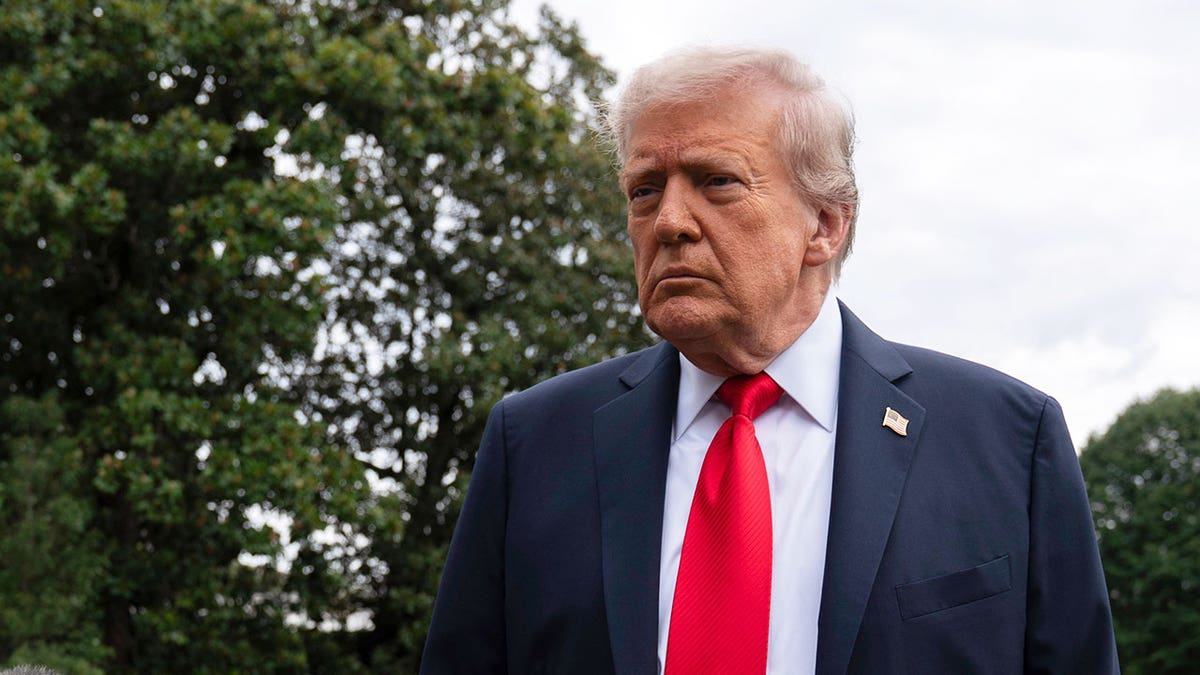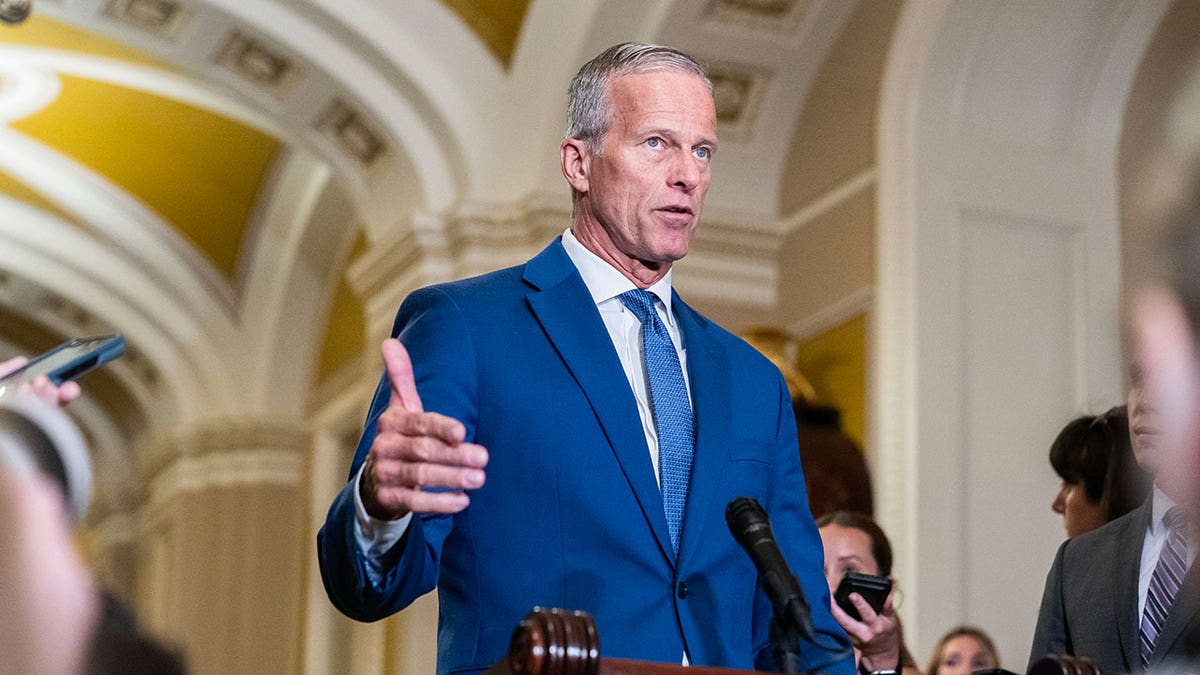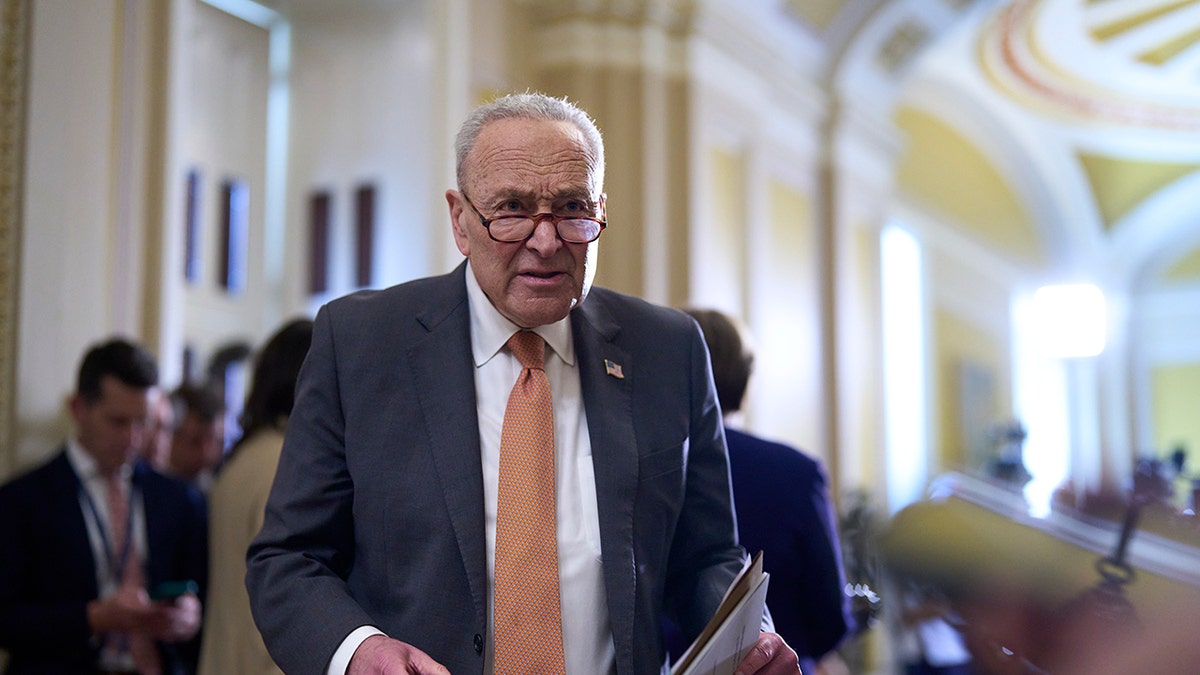

After an attempt to secure a bipartisan deal failed, Senate Republicans went nuclear for the fourth time in the Senate’s history on Thursday to speed up confirmation of President Donald Trump’s nominees.
Republicans had threatened turning to the "nuclear option," which would allow for a rule change with a simple majority vote, to blast through the blockade from Senate Democrats and Senate Minority Leader Chuck Schumer, D-N.Y. Lawmakers were frustrated that through the first nine months of Trump’s presidency, not a single nominee had moved through fast-track unanimous consent or voice votes.
SENATE GOP HURTLES TOWARD NUCLEAR OPTION AFTER DEAL WITH DEMS FALLS APART

President Donald Trump speaks to reporters as he leaves the White House in Washington, Sunday, Sept. 7, 2025. (AP Photo/Jose Luis Magana)
The GOP’s rule change, which was born from a revived Democratic proposal from 2023, will now allow lawmakers to vote on Trump’s nominees in batches.
Senate Republicans’ rule change, which has been pitched as beneficial to the current and future administrations, would only apply to nominees that are subject to the Senate’s requirement for two hours of debate, which includes sub-Cabinet level positions and executive branch picks.
Judicial nominees, like district court judges and district attorneys, don’t fall under the rule change. Lawmakers are expected to plow through dozens of nominees early next week under the new rules with the intent of clearing the backlog of Trump's picks, which grew to over 140 and counting.
DEMS DIG IN AS GOP PREPARES TO GO NUCLEAR IN TRUMP NOMINEE RACE

Senate Minority Whip John Thune after the Senate policy luncheon in Washington, D.C., on July 9, 2025. (Maxine Wallace/The Washington Post via Getty Images)
However, before resorting to the nuclear option, lawmakers were close to a bipartisan deal that would have allowed for 15 nominees to be voted on in groups with 2 hours of debate.
Sen. Brian Schatz, D-Hawaii, blocked the new proposal on the floor, and argued that Senate Republicans were trying to rush through the negotiating process ahead of their plan to leave Washington for the weekend.
"What they're asking for is unanimity, and we don't have it," he said. "And so, if you're interested in enacting this on a bipartisan basis, the process for doing that — It is available to you. But again, it's more a matter of running out of patience than running out of time."
TRUMP NOMINEES PILE UP AS GOP WEIGHS RULE SHIFT ONCE FLOATED BY DEMOCRATS

Senate Minority Leader Chuck Schumer, D-N.Y., turns to an aide during a news conference at the Capitol in Washington, Tuesday, June 3, 2025. (J. Scott Applewhite/AP)
A frustrated Senate Majority Leader John Thune, R-S.D., fired back, "How much time is enough?"
"Give me a break," he said. "Two years. Not long enough. How about eight months? Eight months of this."
The nuclear process began earlier this week when Thune teed up 48 nominees, all of which moved through committee on a bipartisan basis, for confirmation on the floor.
"It's time to move," Thune said. "Time to quit stalling. Time to vote. It's time to fix this place. And the ideal way to fix it would be in a bipartisan way."
Both parties have turned to the nuclear option a handful of times since 2010. In 2013, then-Senate Majority Leader Harry Reid, D-Nev., used the nuclear option to allow for all executive branch nominees to be confirmed by simple majority.
Four years later, then-Senate Majority Leader Mitch McConnell, R-Ky., went nuclear to allow for Supreme Court nominees to be confirmed by a simple majority. And in 2019, McConnell reduced the debate time to two hours for civilian nominees.
